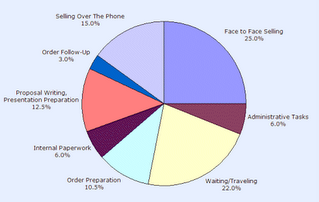There are lots of consultative sales methods around. You may have been trained in one, or read a book about one, that you particularly like.
Each has its unique strengths and techniques. But they all have at least one thing in common. They try to get sales people to focus on what matters to the customer. You build sales momentum by demonstrating that you are delivering an important solution to an important problem. That is the essence of all these consultative methodologies.
To be able to create a client-centered solution - and to be able to write a client-centered proposal - there are seven questions you must be able to answer.
Oddly enough, lots of people try to write proposals without knowing the answers to even half of these questions. That makes it impossible to create a message that sounds "right" to the buyer.
Here are the seven questions. Make sure your sales people uncover the answers, make sure every proposal and sales presentation is based on them, and you'll win a lot more business.
1. What is the client's problem?
Look beyond the obvious. Your contact in the customer organization may describe the problem in terms that are specific to his or her interests. An IT manager sees the lack of on-line access to customer account information as a data integrity problem. To the vice president of sales, it's a revenue problem, because it's keeping the sales force from separating good clients from the not-so-good.
2. Why is it a problem?
Who is affected by this problem? How are they affected? Try to trace the links as high up the organizational ladder as possible to get a sense of how big the pain is. This will also indicate who else may need to be part of the decision team.
3. What objectives does the client have in mind for a successful solution?
How will the client measure success? In terms of business or financial performance? In terms of improvements in the technology infrastructure? Or in terms of customer loyalty or employee morale? Each of these areas - business results, technical outcomes, and social relationships - is potentially important. Which leads us to the next question:
4. Which of those objectives is most important?
They may all be important, but which one matters the most? This tells you two things: First, it tells you the order in which to put your presentation of key outcomes. You want to put the customer's most important outcome first. That way, the customer will think that you think the way they think. Second, knowing which objective is most important tells you where to look to develop your value proposition. You want to base your ROI or other presentation of value on what matters the most to the customer.
5. What are the ways we can solve the client's problem?
Usually there's more than one way to solve a particular problem. If you're having trouble with how long it's taking your sales force to write sales proposals, for example, I could recommend software to automate the process, training to improve their skills, or a combination.
6. What are the probable outcomes from each potential solution?
Any of the potential solutions might take care of the problem. The important issue is what kind of outcome the customer will get. Will it match up to their expectations for a positive result? Will it meet their criteria?
7. Which solution is best?
Based on the answers to the previous six questions, we should be able to answer the final question. It should be fairly obvious which solution meets the needs and delivers the results the customer desires most.
Trying to write a proposal or make a sales presentation without knowing the answers to these questions is like competing in an archery contest blindfolded. You might hit the bullseye occasionally. But you're just as likely to shoot yourself in the foot.





